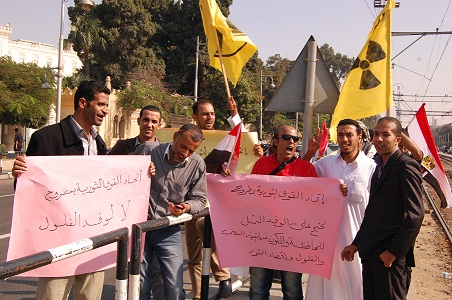CAIRO: The global economic crisis is Africa’s opportunity for growth – something that’s been said time and time again since 2008, and was reiterated by experts at a venture capital conference taking place this week in Cairo.
The eighth annual conference, hosted by the African Venture Capital Association (AVCA), opened Nov. 15 and ends today.
Titled “Africa: The Growth Continent for Private Equity, Investment Opportunities and Beyond, the conference aims to gather investors and businesses from around the continent to share their experience and discuss business prospects in Africa.
“This conference should create opportunities for 2010 and beyond, said Rotimi Oyekanmi, AVCA chairman.
“If there is a place safe from the crisis, it is Africa, said Geoff Connor, former Secretary of the State of Texas. “This is a moment of exciting opportunity, he said, stressing on the continents’ attractive attributes: natural resources, human capital, strategic location and a growing market.
Connor added that Africa is at an advantage in attracting investments right now, but pointed out that there is a number of issues that have to be addressed such as the striking economic gap between rich and poor, corruption, lack of infrastructure, problems with rule of law, and low school enrollment rates.
The theme of political and social change in Africa was picked up by Nanno Kleiterp, the CEO of FMO, who gave a speech at the opening of the second day of the conference. He noted that the business climate on the continent has been improving and that the prospects for economic development are quite positive.
“If you look at our portfolio in Africa, it has the same if not better performance than our portfolios in Asia and Latin America, he said. FMO has invested more than $1.5 billion in Africa up to now.
African countries have reached some of the highest economic growth rates in the world. While developed economies are contracting in Europe and North America, Africa is expected to grow by 4 percent next year.
Ethiopia is the fastest growing economy while Rwanda is competing with India and Vietnam in growth. Trade surpluses in African countries are rising, and the continent has reached number five in terms of Global FX Reserves.
The African investment map has also been changing in the last decade. While in the past, sources of finance were limited to Europe and North America, today 40 percent of trade and investment comes from India, China and Brazil.
“No one on this planet can afford not to engage with 86 percent of the worlds’ consumers, said Vijay Mahajan, referring to the percent of the world’s population that developing countries hold.
Mahajan, who is a professor at the University of Texas in Austin, presented his book “Africa Rising, How 900 Million African Consumers Offer More than You Think. He underlined the advantages of China and India as investors in Africa which, in his opinion, have a similar mind set to African nations and therefore, more fitting business strategies than Europe and North America do.
Analysts at the conference were unanimous that the global financial crisis has catalyzed a change in investors’ attitudes and thinking. Market development is seen from a different angle today, and “risk-free investment no longer exists as a concept. In this way, the African market is increasingly seen today as a market of opportunity rather than of unmanageable risk.
Yet a few specialists pointed out that one of the biggest challenges that Africa faces is the negative image of instability that the continent has among foreign investors.
AVCA, a non-profit organization based in Africa, works to facilitate the growth of private equity in the continent, holds networking sessions like this conference to connect private equity firms and businesses.
The 120 firms affiliated with AVCA manage a collective $5 billion.
AVCA hope that the growth of private equity in Africa would help bring methods and technologies to the continent that might solve some of the region’s basic challenges.

